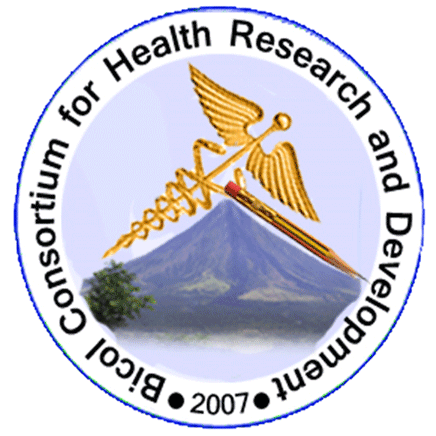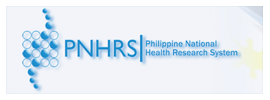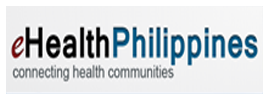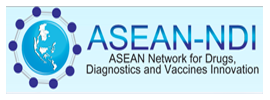CALL FOR APPLICATIONS: GELIA CASTILLO AWARD FOR SOCIAL INNOVATION IN HEALTH (GCASIH)
The Gelia Castillo Award for Social Innovation in Health (GCASIH) aims to recognize the outstanding models of social innovations that address persistent, societal and health systems challenges. The award also acknowledges the innovators at the frontlines. Through the innovators’ experience we can better understand how and why social innovations are impactful, the factors enabling their success and the lessons that can be gleaned from their experience to scale it more broadly in the larger health system.
The award is open to all ongoing social innovation programs or projects developed by Filipinos for the Filipinos. The entry must be implemented mainly in the Philippines.
For the purposes of this Award, Social innovations in Health (SIH) is defined as a novel solution (process, product, practice, market mechanism) created and implemented by a range of stakeholders, in response to a priority health need within a geographical context. This may come from a formal or informal research process that has enabled innovation has enabled health care that is more inclusive, affordable and effective.
Who can nominate?
- Any institution - public or private
- Members of the consortium
- Scientific, technological and professional societies or associations
- Research institutes
- Universities and colleges
Individuals
*Self-nomination is not allowed.
Criteria
- Eligibility. The research or innovation program or project will be considered for shortlisting based on the following eligibility criteria. The entry or entries:
- Must be developed by Filipino/s.
- Must be implemented for at least one (1) year.
- Based on an identified priority health need of a community or geographical context.
- Complete application form (that has sufficient information for a fair review) submitted within the set deadline.
- Selection. The shortlisted, eligible entries will be reviewed by an external selection panel based on the following selection criteria
| SELECTION CRITERIA | DESCRIPTION | WEIGHT |
| General/ Generic Criteria | ||
|
The innovation provides a novel approach to address a systemic health challenge within the context. It provides an alternative to the status quo | 25 % |
|
2. Inclusiveness |
The solution has the potential to be used by a large number of people, enhancing equity and access | 15% |
|
3. Affordability |
The solution is affordable to the poor who are otherwise excluded in the local context or the solution is more cost-effective than the status quo | 15% |
| 4. Effectiveness | The solution has a demonstrated positive outcome on the health challenge it is addressing | 15% |
| Country- specific Criteria | ||
| 1. Based on Health Need | The solution addresses a health priority of the Philippines (as defined by the National and/ or Regional Unified Health Research Agenda), or a priority in a more localized level such as prevalent yet neglected health problem in a town or a marginalized group/ ethnic group | 10% |
| 2. Participatory & Co-Owned | Participatory approach is evident in the development, implementation, and evaluation of the innovation (i.e. contributions from various stakeholders: the patients/ families, local health personnel, local leaders, other sectors) | 10% |
| 3. Has Potential for Integration/ Scale | Feasibility for the solution to be applied, replicated and scaled up to other communities with similar problems. | 10% |
GCASIH Secretariat
Nomination Procedures
- How to nominate
- Nominations should be made using the prescribed nomination form. All entries must be submitted to and endorsed by an institutional RHRDC Member.
- RHRDC Secretariat will evaluate the submissions based on eligibility criteria
- All interested parties may submit in person, through a courier or through an electronic mail. All entries must be submitted to the Regional Health Research and Development Consortia (RHRDC). A list of contact persons and addresses per RHRDC will be provided. A web-based nomination platform will also be designed to those who wish to submit online. The platform can help facilitate receiving, storing and processing of nominations
- Aside from the fully accomplished nomination form, all interested parties are requested to submit relevant documentary proofs (e.g. publications, technical reports, certifications, photographs)
- Schedules and Deadlines
Nominations are accepted and reviewed on a rolling basis. Entries received after the deadline may be considered in the next cycle. However, strongest consideration will go to those entries submitted on or before the prescribed deadline.
Procedure for Selection
There will be two (2) levels of selection:
- The Preliminary Screening or Shortlisting
- Final Selection
Preliminary
- Preliminary screening/Shortlisting
- The RHRDC will be responsible for the initial review and shortlisting of all entries based on the eligibility criteria. The applicants whose nominations have been excluded should be emailed directly to be informed that their nomination did not meet the eligibility criteria.
- The RHRDC will then recommend the shortlisted entries to an independent panel of experts to be appointed/convened by the DOST-PCHRD and the DOH for evaluation and final selection.
Final Selection
- A panel of experts will be convened based on the number of shortlisted entries received.
- Allocation of entries to expert panel will be in two distinct ways:
First: targeted allocation where the entry will be matched to a reviewer that have some or is an expert in the focus area of the innovation being presented
Second: random allocation
This dual approach will help ensure that the selection process is relevant and fair. If there is a conflict of interest in the allocation, the entry should be reassigned.
- Once the review panel has been organized, they can begin the process of scoring nominations. Each nomination will be evaluated by two reviewers and will be scored on a scale of 1 – 5 in 0.5 increments. An online scoring platform is proposed to be developed to make the evaluation more unified and transparent.
- Once all scores have been received from the selection panel members, the two scores for each nomination should be averaged. The full list of nominations must then be ranked by these average scores.
- Once the final selection has been concluded and before the public announcement is made, each applicant should be directly contacted with the outcome of the decision (i.e. was or was not selected).
- If no innovation sufficiently meets the qualifications, the expert panel has the prerogative not to give the award.
- The decision of the expert panel of reviewers is final.
| DESCRIPTION | RANGE |
| Outstanding | 4.5/ 5.0 |
| Excellent | 4.0 |
| Very Good | 3.0 /3.5 |
| Ordinary | 2.5 |
| Needs more thought | 1.5 /2.0 |
| Flawed | 1.0 |
Incentives
Option A:
The Award consists of a cash prize of Php 100,000 each and a trophy for the top 3 socially innovative projects.
Alternatively, we can award:
Php 200,000 for the top socially innovative project and Php 50,000 each as consolation incentives for top 2 and 3 projects/innovations respectively.
OR
One winner each in Luzon, Visayas, and Mindanao with cash incentive of Php 100,000 each.
Option B (in the future/subsequent calls):
Innovation acceleration fund (between Php 300,000 – Php 500,000) + capacity building package/workshop with partner institution (e.g. SIHI Philippines Hub and/or Asian Institute of Management) to further expand and scale the innovative project.
DEADLINE OF SUBMISSION OF NOMINATIONS WILL BE ON APRIL, 2019.











